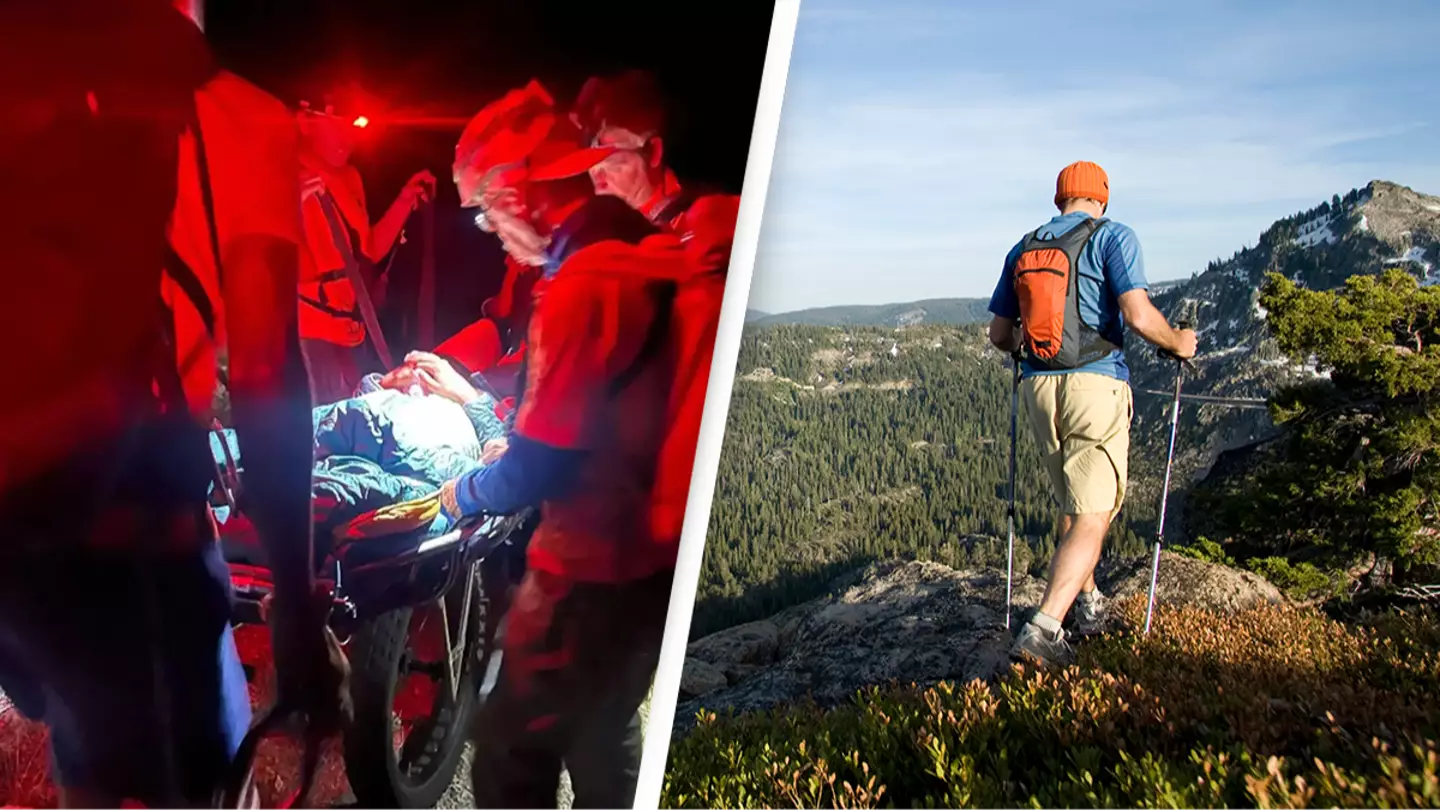A hiker found herself in a dire situation on a remote mountain trail after experiencing what she mistakenly believed to be a spider bite. This incident led to a dramatic five-hour mountain rescue operation. On Wednesday, June 12, the woman, who has chosen to remain anonymous, was trekting across the Taboose Pass in Sierra Nevada, California, when the ordeal unfolded.
According to a press release from Inyo County Search and Rescue (Inyo SAR), the hiker was collecting water when she suddenly felt a sharp biting sensation, which she initially attributed to a spider. The pain escalated quickly, leaving her with a terrifying numbness in her legs, rendering her unable to complete her hike.

Amidst her growing panic, she faced another challenge: her phone’s battery was nearly depleted. Desperate, she managed to call for help using the last remnants of her phone’s battery before it died entirely. The call for help was received by Inyo SAR around 6:30 p.m.
In response, a rescue team from Inyo SAR quickly assembled in Bishop and navigated the rough terrain to the Taboose trailhead. The rescuers then maneuvered a wheeled litter along the trail for about 1.5 miles until the path became too treacherous to continue using the litter. They stashed the litter and proceeded on foot, securing the hiker with ropes to ensure her safety through the more precarious sections of the trail. The rescue operation concluded just before midnight, with both the hiker and the rescuers safely reaching the trailhead.
Initially believed to be a spider bite, the cause of the hiker’s distress was later identified as something rather unexpected and common: stinging nettles. Lindsay Stine from the county sheriff’s office clarified to the New York Post, “Rescuers believe that the individual who needed rescuing was stung by stinging nettles located on the overgrown trail.”

The hiker had accidentally walked through a patch of these nettles while trying to avoid snow on the Mather Pass. Stinging nettles are known for their hair-like structures that release irritants including formic acid upon contact, causing intense irritation. Fortunately, the symptoms are generally short-lived, not lasting more than 24 hours, and the hiker is now recovering well.
The Inyo County Search & Rescue team used this incident as an opportunity to remind hikers of the importance of being well-prepared. They recommended carrying a power bank and investing in a satellite messaging device to ensure safety and communication in remote areas.

